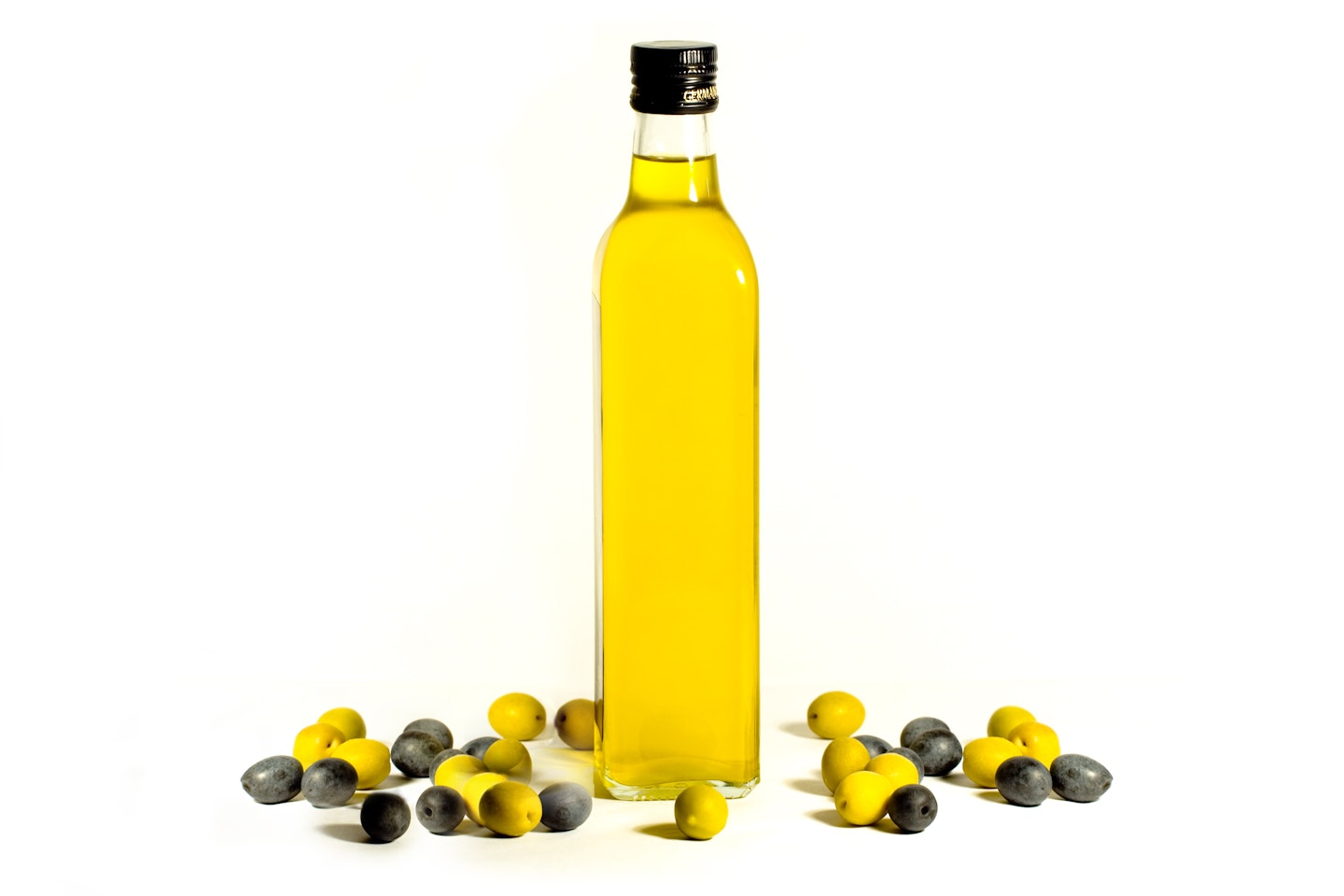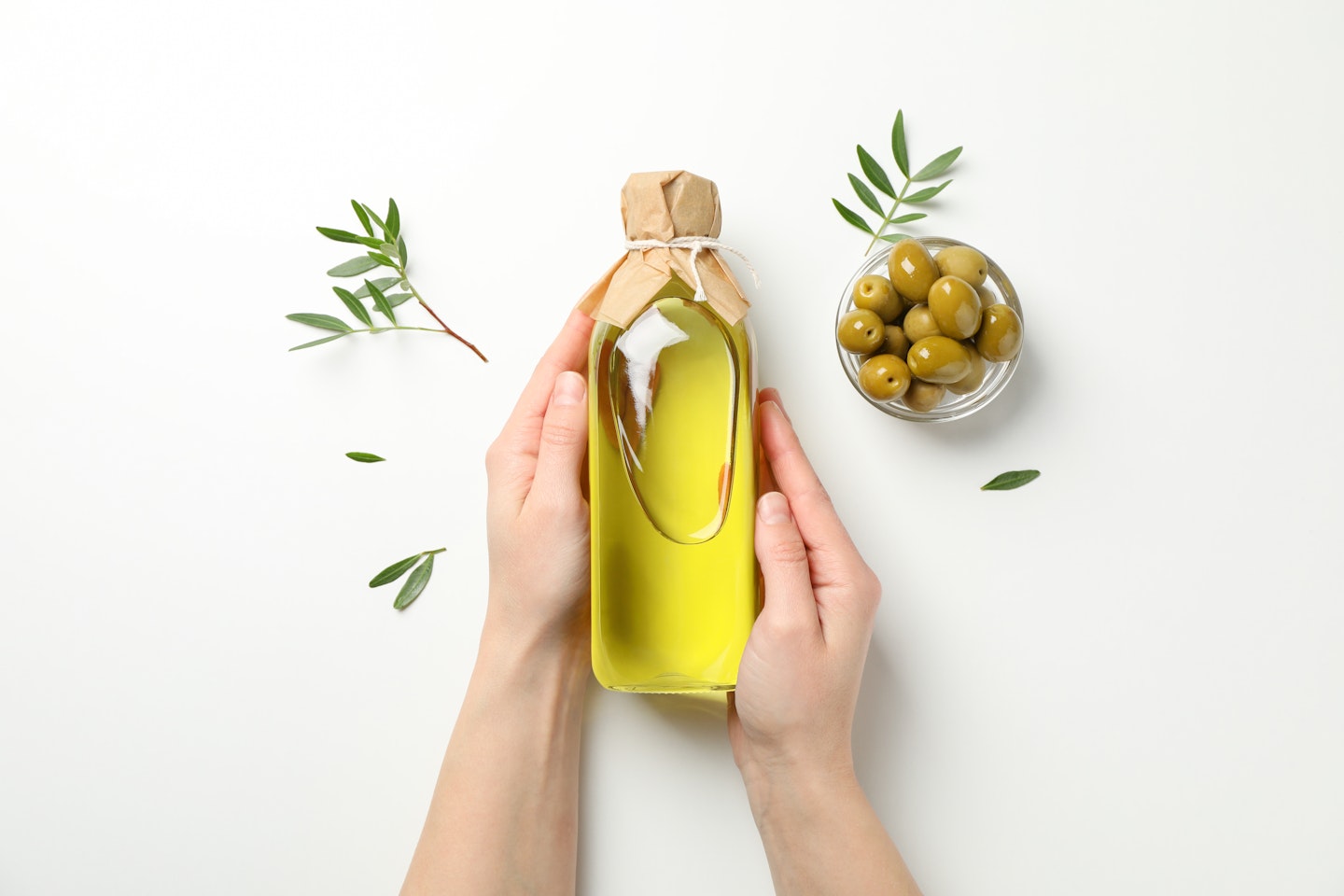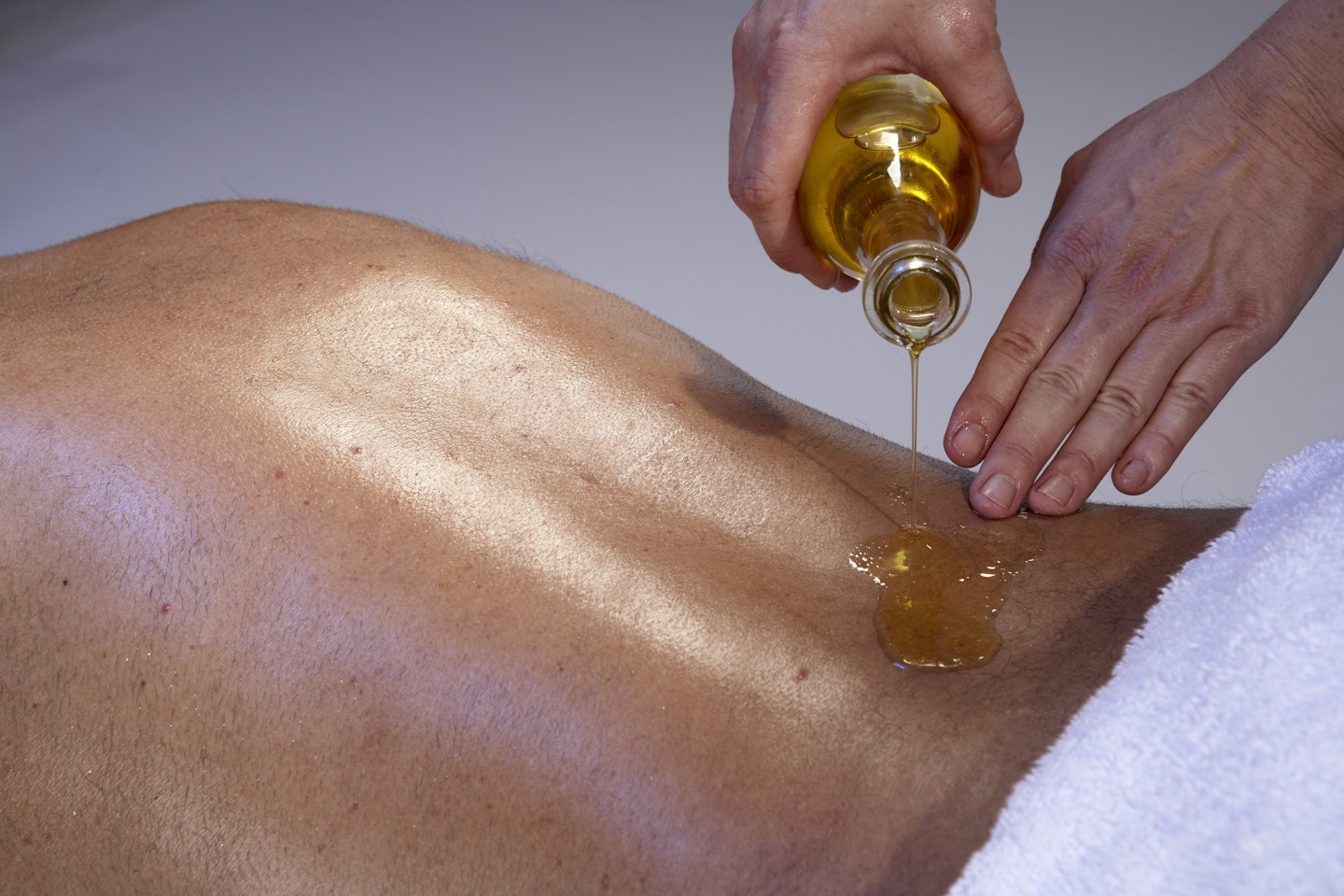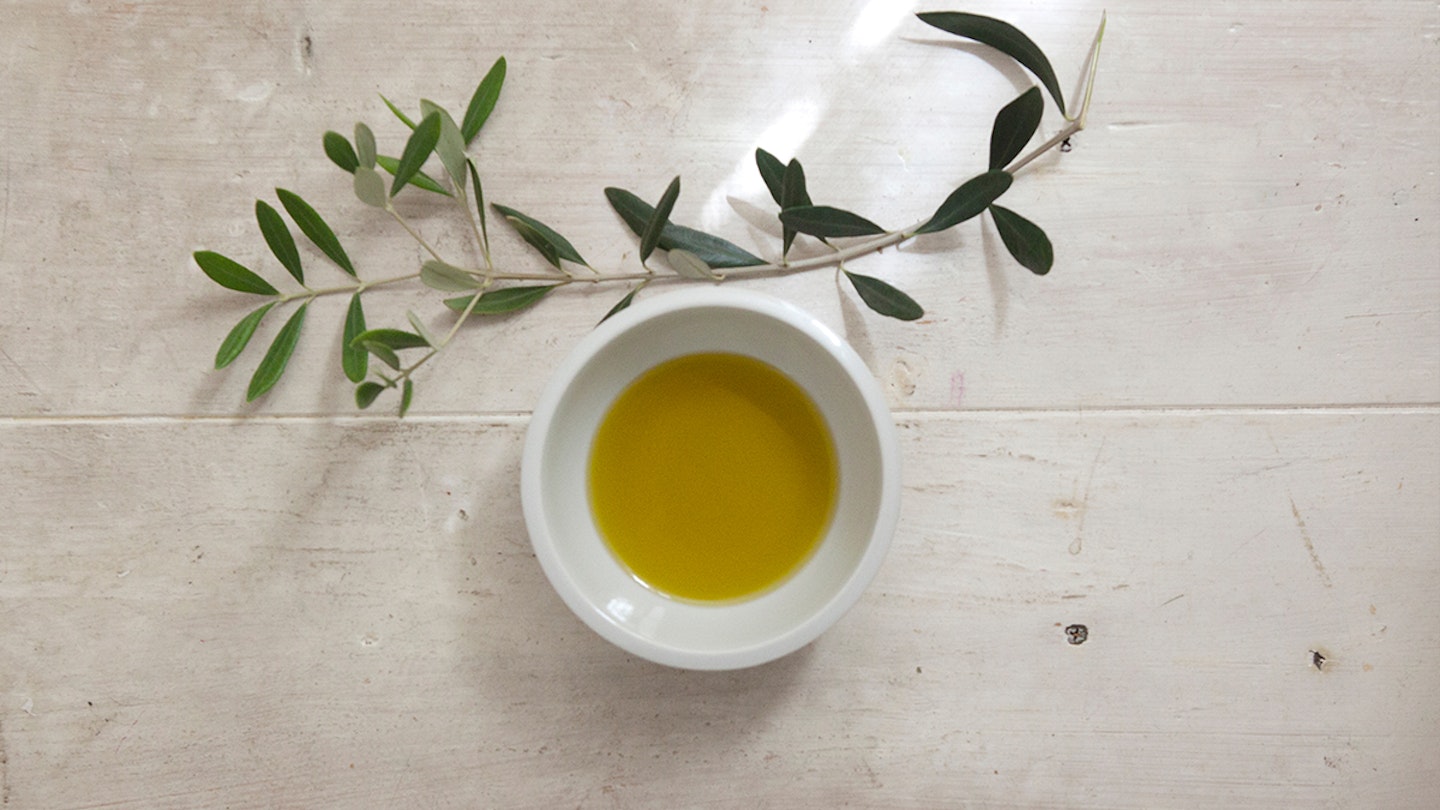When you first think of olive oil perhaps cooking comes to mind. However, olive oil isn’t just good for our health but also for our skin and hair. Here's everything you need to know about how to use it on your skin and when you shouldn't.
What is olive oil?
Olive oil is a natural oil extracted from pressed olives. It contains monounsaturated fatty acids (healthy fats) that have a variety of skin benefits, as well as keeping our cell membranes healthy. As well as being used in cooking, it can also be found in lots of skincare products, as it’s rich in antioxidants and for its moisturising and anti-ageing effects.
Is it OK to put olive oil on your face?
Olive oil contains vitamins and antioxidants that prevent premature ageing, sun damage and helps to moisturise your skin on your face and body.
This popular cooking oil has also been used for thousands of years, so if it’s good enough for Cleopatra's beauty routine, then you know it must do some good!
Here we break down the benefits of olive oil, what skin types it should be used on and how to use it.

Side effects of using olive oil on skin
If you’re prone to congested skin or suffer from acne, then you should probably avoid putting olive oil on your skin. This is because the fatty acids within olive oil can create a breeding ground for bacteria that causes acne to grow. However, if you do suffer from skin issues and are still keen to give olive oil a go, we recommend using a skincare product that contains olive oil, rather than reaching for the bottle in your kitchen cupboard.
Olive oil for skin benefits
1. It works as an antioxidant
Olive oil's antioxidant properties work to defend your skin cells against any external damage or inflammation. This in turn works against premature ageing or redness.
2. It moisturises your skin
Olive oil is a great way to keep your skin healthy and moisturised as it reduces water loss. The oil increases the water content within your skin which gives it a radiant appearance.
3. It fights bacteria
Olive oil has been shown to have beneficial antibacterial properties. However, there are not many studies that prove the oil’s ability to regulate bacteria on your skin. Nevertheless, olive oil may sometimes be used to treat bacterial infections on other parts of the body such as healing foot ulcers.
4. It is vitamin-rich
As Olives are rich in vitamins D, A, K and E the oil can help in decreasing oxidative stress on the skin which can lead to aging skin. Throughout history oils rich in vitamin E are used to treat skin conditions such psoriasis and eczema.
What is the best olive oil for skin?
Organic extra virgin olive oil will be the best as it is made in a way that enables the oil to retain more of the olives' minerals and vitamins.
Is olive oil good for dry skin?
Olive oil is generally beneficial to all skin-types. However, if you have sensitive or acne-prone skin it is not recommended to use olive oil.
"While olive oil generally has high safety and low comedogenic ratings, for people with very sensitive, dry or eczema-prone skin, olive oil can incur further damage to the skin barrier," says Ming Zhao, CEO of PROVEN Skincare, a company that creates tailor-made beauty products.

How to use olive oil on skin
There are different types of ways you can use olive oil.
Make-up remover
You can use olive oil as a make-up remover as the oil can break down water-resistant substances such as eyeliner or mascara. The oil will break it down and help it to wipe away more easily. To use the oil, add a few small drops to a cotton pad and gently wipe the area.
Anti-ageing treatment
It may also reduce ageing skin and wrinkles as it has a high antioxidant content. To use as a wrinkle treatment, dab the oil around your eyes at night.
Eyelash conditioner
Olive oil locks in and conditions eyelashes just like it would nourish your hair. Use a small drop and massage lightly onto your eyelashes before washing off.
Massage with olive oil
Olive oil treatments don’t need to be limited to the face but can be used on the whole body too! Use the oil to massage yourself or someone else. It can help calm down any inflammation on the body.

Exfoliate dry lips
You can use olive oil on your dry lips by creating a mixture of 1.5 tbsp of olive oil with 2 tbsp sugar and 1tsp honey in a small bowl. Massage this onto your lips then wash away with warm water.
Scarring
It can also work as a scar oil treatment as the vitamins and antioxidants may help the scar fade and the skin cells regenerate. To use the oil as a treatment massage a small amount of oil onto the scarred area. You can also add a bit of lemon into the mixture to lighten the darkened scar area. You can also use it as a treatment for stretch marks.
Moisturiser
If using olive oil as a moisturiser it is recommended to use organic extra-virgin oil. If using regular cooking olive oil, it will not have the same benefits as it does not have all the E and V vitamins that will benefit your skin. You only need a couple of drops otherwise your pores may end up getting too clogged and cause acne breakouts.
Face masks
Many face masks use olive oil as a substance to hydrate your skin. If you have dry skin, you will see benefits from using an olive-oil based face mask. See the video below for a tutorial on how to make a simple DIY olive oil face mask.
Foot exfoliant
You can use it on cracked heels, or on your feet when they need a little love and care. You can use olive oil to exfoliate your feet with a pumice stone and a little drop of oil. Do this before you go to sleep, and you’ll wake up to softer feet.
For babies
Many people use olive oil as massage oil for their babies. This also helps with dry skin, cradle cap and eczema.
Our end verdict
Whilst olive oil is a natural substance to use on your skin, we believe the quality of the oil really matters. If you decide to use olive oil on your skin or hair make sure to be using organic extra-virgin olive oil as that contains all the good vitamins and antioxidants.
For sensitive or acne-prone skin, we would recommend not using olive oil on your face as it could irritate your skin, clog your pores or cause acne breakouts or current acne to worsen.
Of course, there are many benefits of using olive oil, but it is not just limited to your face. We give this natural treatment a thumbs up as you can use olive oil on your hair even on your body!
You can even do an olive oil deep-conditioning treatment or use it on your feet or dry elbows!
We're sold.
Check out other foods that can work wonders for your skin here.
